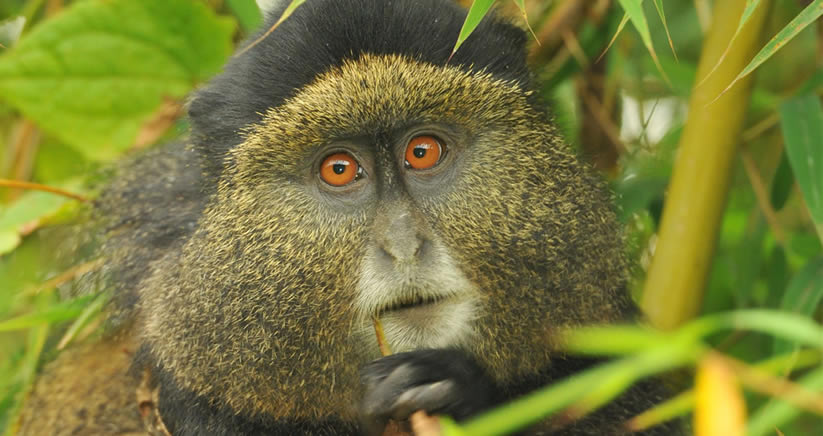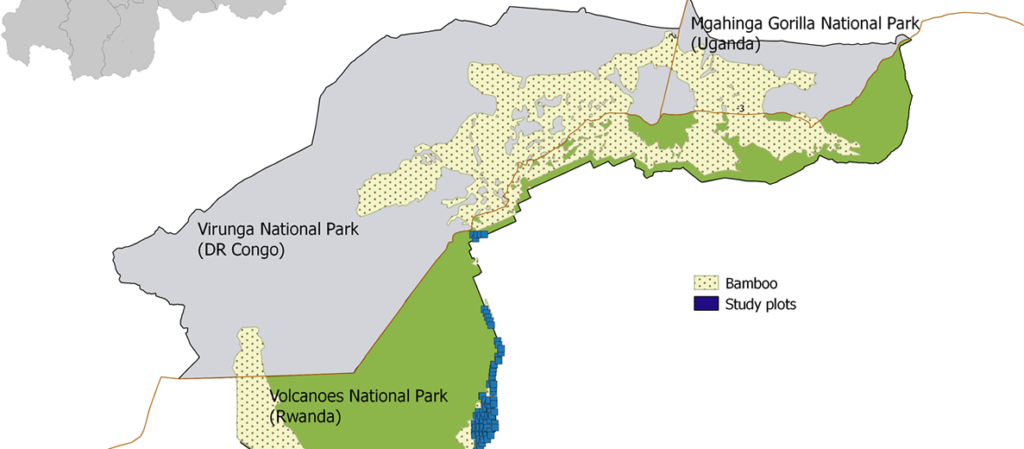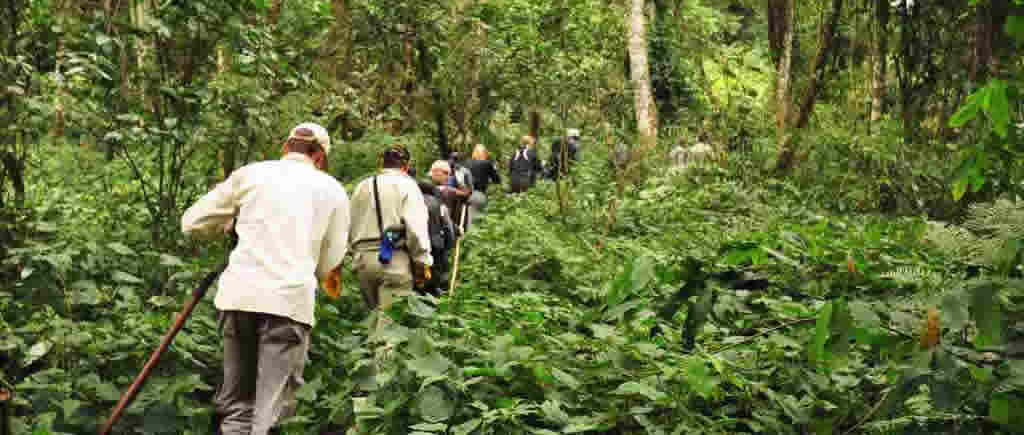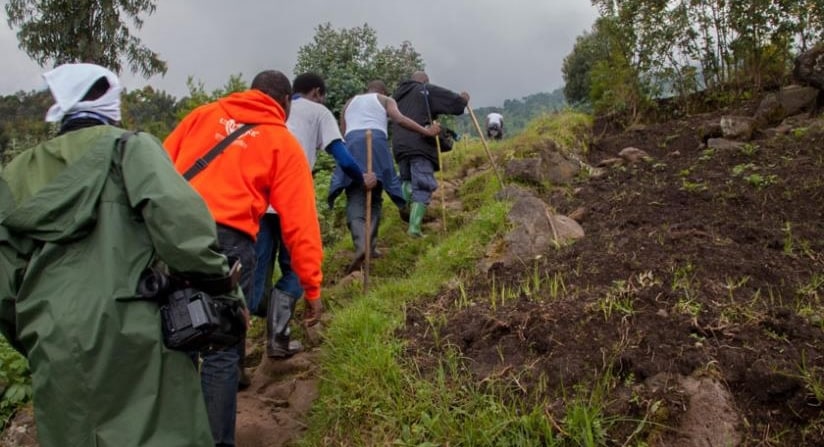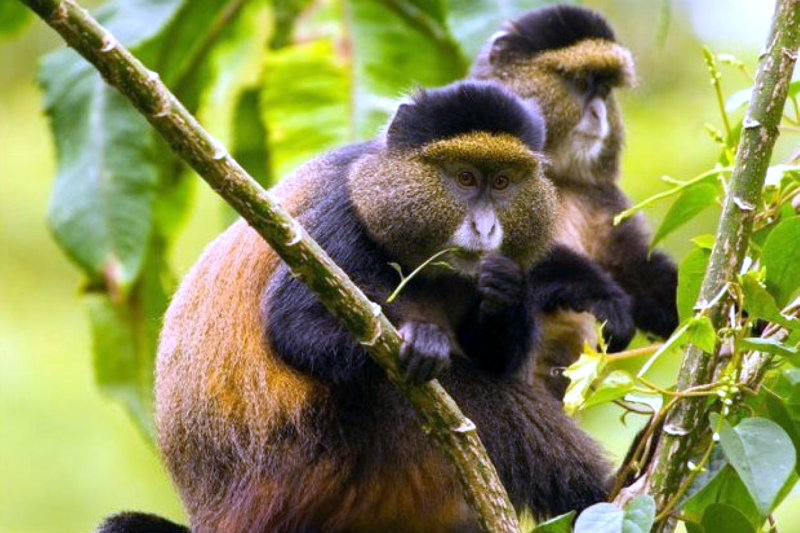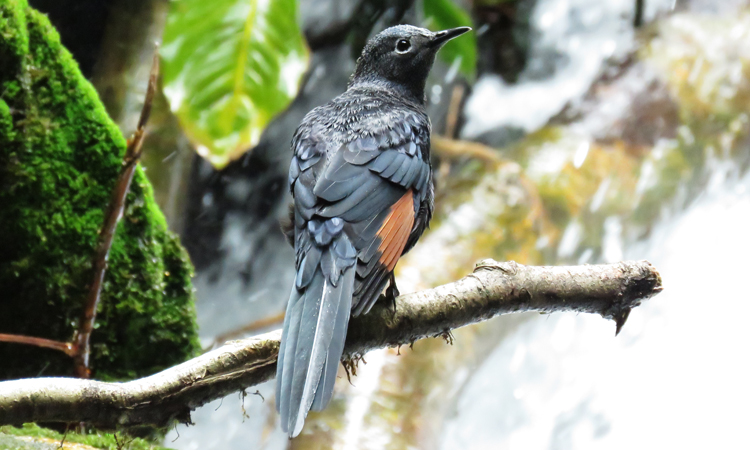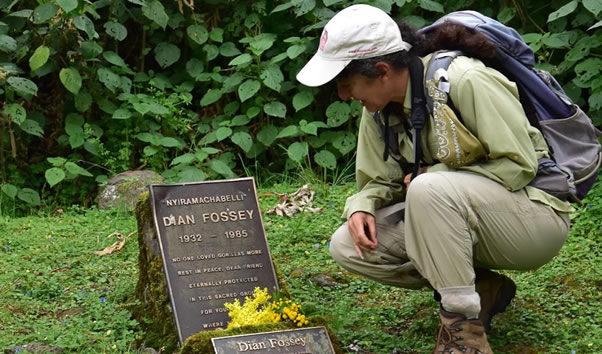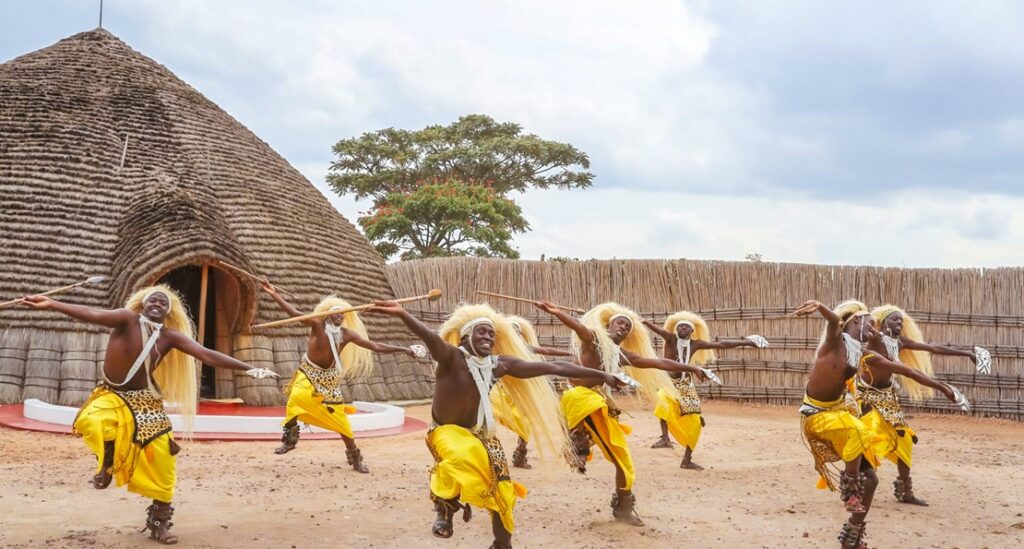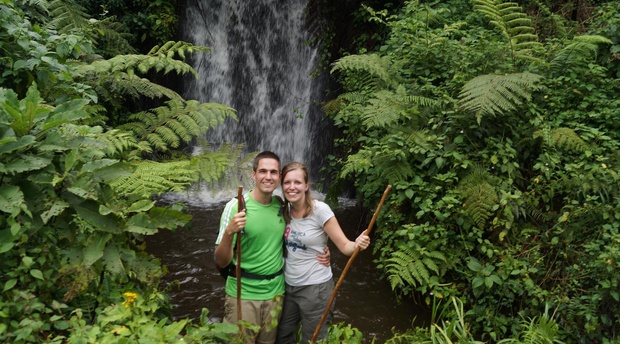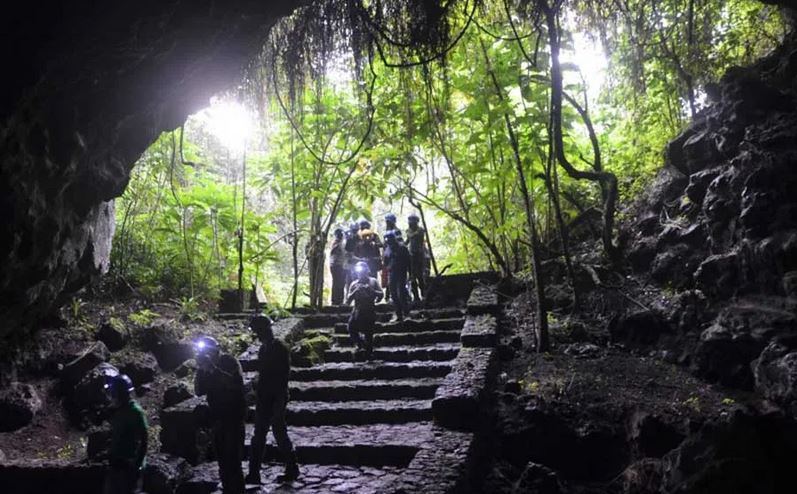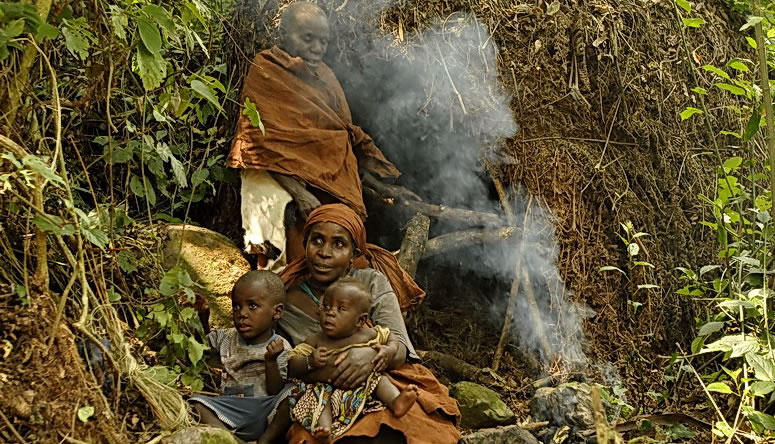Golden monkey trekking is another special primate adventure done in the Virunga Conservation Area. The experience offers enthusiastic nature lovers a lifetime opportunity to explore in depth the charming golden monkeys while in the wild. Golden monkeys are endemic to only the Virunga Area of Uganda, Rwanda, and D.R. Congo. These apes are interested in interacting on the African safari, and this is possible on the Uganda safari or Rwanda safari tour.
Golden monkeys are a sub-species of the sky monkeys also most popular as the blue monkeys. Golden monkeys (Cercopithecus Mitis Kandti) live in large groups/troops comprising over 60 individuals, and each troop is led by a dominant male. These apes are amazing and charming and they love jumping meaning, in order to capture their pictures, you must be sharp as well. 
Golden monkeys grow a golden-orange and black silver patch on their fur hence their name. They also fall among the most endangered primate species in Uganda and some parts of Africa. visiting these primates in the wild, means, you have supported their survival 100%. A total of about 5000 golden monkey population still exists on earth, and these roam around the slopes of the Virunga Area.
Best places to visit to see golden monkeys in Africa
Golden monkeys live in Africa, and tracking or viewing them in the wild is possible on safari in Uganda or on safari tours in Rwanda/Congo. In Uganda, golden monkey tracking tours are conducted in the Mgahinga Gorilla National Park, a reason this park is best known as the place where golden meets silver.
Tracking golden monkeys in Mgahinga N/Park
 Golden monkeys are listed among the 20 species of primates in Uganda, and these amazing creatures can be visited in Mgahinga National Park. They are charming monkeys unlike other species of monkeys in the wild. They are classified as endangered by IUCN, and this means, there are still more efforts to ensure their survival for today and future generations.
Golden monkeys are listed among the 20 species of primates in Uganda, and these amazing creatures can be visited in Mgahinga National Park. They are charming monkeys unlike other species of monkeys in the wild. They are classified as endangered by IUCN, and this means, there are still more efforts to ensure their survival for today and future generations.
Tracking golden monkeys in Mgahinga N/Park is done in already habituated troops of golden monkeys. Unlike mountain gorilla trekking, tracking to see golden monkeys isn’t strenuous and lasts for 2-4 hours.
At Mgahinga, there is also an option to go through experiential golden monkey habituation. This is special in that visitors visit not habituated golden monkey troops, and it is a long day of following golden monkeys while taking note of their daily behaviors, photography, and more.
Mgahinga National Park is located in Kisoro, Southwestern Uganda, a special place to find both golden monkeys and endangered mountain gorillas. About 2 troops of these apes have undergone habituation and currently, they can be visitors by Uganda safari holidaymakers.
Uganda golden monkey trekking permits
Visitors with plans to explore Uganda’s golden monkeys can obtain golden monkey permits through a reliable tour operator or directly via the reservation team at Uganda Wildlife Authority -UWA. Each of Uganda’s golden monkey permits costs USD 60 (foreign non-residents & foreign residents), shs. 40,000 (East African citizens).
Tracking Mgahinga’s golden monkeys begin at Ntebeko offices with a briefing about golden monkey tracking rules. The park guide assigned to you will accompany you on an actual trek to see troops of these interesting primates in the wild. This adventure usually begins at 8:00 am taking primate lovers 2-4 hours.
Where to stay
The most popular and nearby lodging options to book at Mgahinga include Mount Gahinga Lodge, and Mount Gahinga Rest Camp. In Kisoro, the lodges or campsites to stay in include Mount Mucha Hotel, Kisoro Travelers Lodge, Mubano Hotel, Montana Guesthouse, Muhabura Motel, Kisoro Tourist Hotel, etc.
Getting to Mgahinga for the golden monkey tour
By road travel: Guests on safari to Mgahinga National Park have 2 key options to reach to the park. From Kampala, spend over 9-10 hours through the Masaka-Mbarara-Kabale-Kisoro route, one of the best Southwestern routes and also rich with interesting tourist sites worthy of making a stopover such as the Equator crossing or branch off to Lake Mburo National Park for a game safari then proceed to Mgahinga for actual golden monkey tracking. The second road travel option is connecting from Kigali capital, through Chanika border and you pass via Kisoro, about 4-5 hours’ drive. If you are not interested in long hours of driving, you can also fly from Entebbe International Airport or Kajjansi airfield to Kisoro airstrip where you can transfer to the hotel or lodge in Mgahinga NP.
Tracking golden monkeys in Rwanda
 Golden monkey trekking in Rwanda is done in Volcanoes National Park, the same park where mountain gorillas can also trek on a Uganda safari tour. Most of Rwanda’s golden monkeys reside around Mt. Sabyinyo slopes. These primates have also been spotted around Nyungwe Forest National Park and Gishwati-Mukura National Park, although they have not been habituated for tracking or tourism purposes. Each visitor on Rwanda golden monkey tracking tour can be part of this unforgettable primate safari experience only if he or she has valid permits which are issued at USD100.
Golden monkey trekking in Rwanda is done in Volcanoes National Park, the same park where mountain gorillas can also trek on a Uganda safari tour. Most of Rwanda’s golden monkeys reside around Mt. Sabyinyo slopes. These primates have also been spotted around Nyungwe Forest National Park and Gishwati-Mukura National Park, although they have not been habituated for tracking or tourism purposes. Each visitor on Rwanda golden monkey tracking tour can be part of this unforgettable primate safari experience only if he or she has valid permits which are issued at USD100.
Volcanoes National Park in Rwanda is accessible by road, about 2-3 hours’ drive, and a 4×4 tourist vehicle is a preferred choice for all your ground travel. At Volcanoes NP, there are multiple accommodation options to consider for an overnight stay -budget, midrange, and luxury. These include Mountain Gorilla View Lodge, Bisate Lodge, Muhabura Hotel, Sabyinyo Silverback Lodge, Garden Place, Da Vinci Lodge, Five Volcanoes Boutique Hotel, and more.
Golden monkeys in Congo
Golden monkeys in Congo reside around the Virunga National Park and some parts of Kahuzi-Biega National Park. These two parks are located on the Eastern side of Congo and unlike Rwanda and Uganda, golden monkey tracking isn’t open to tourists.
When to travel for golden monkey trekking
Golden monkey trekking in Uganda or Rwanda is open all year round. The two countries enjoy favorable weather conditions, but the best time to have the most of this life-changing primate adventure is during the dry months; June, July, August September/December to February.
What to pack
• Waterproof hiking boots
• Safari hat
• Long trousers
• Rain jacket
• Flashlight-free camera
• Insect repellent
• Sweater
• Long-sleeved shirts






